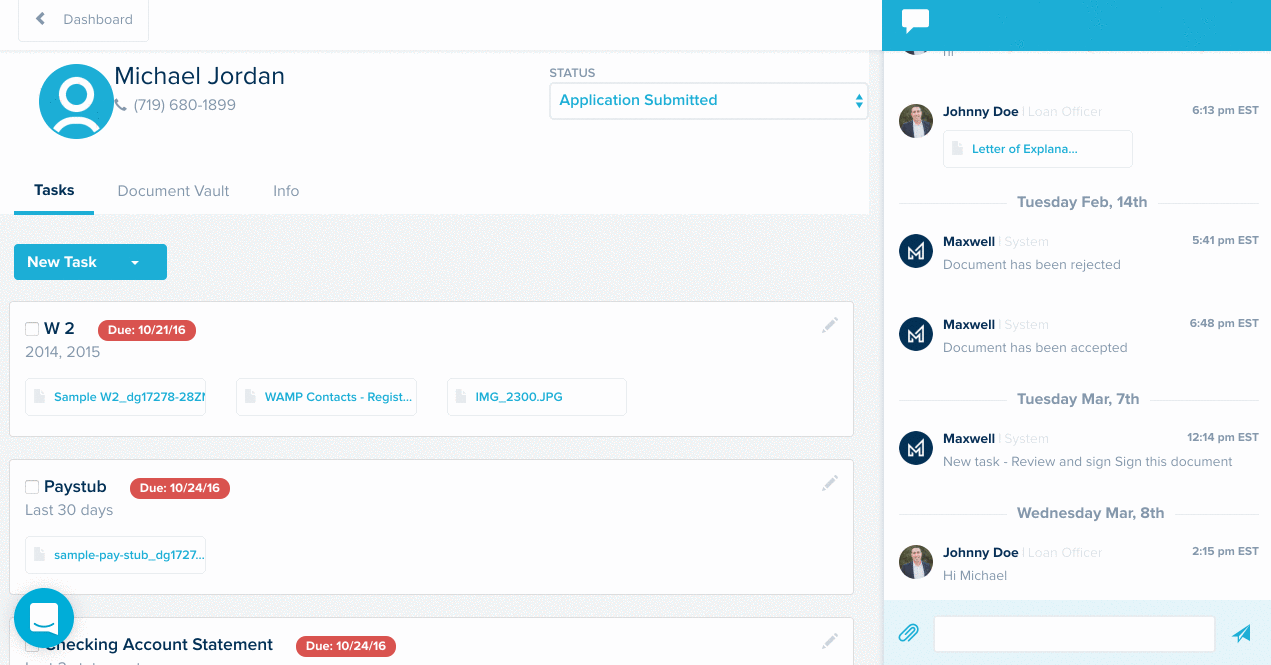4 ways that email disappoints
Email has been pronounced “dead” every few years by a technology pundit since it was invented in 1972. (See Why Email Will Be Obsolete by 2020) Yet, email continues to dominate in usage and popularity.
My colleague Rutul Davè wrote another post (1999 called, it wants emails back), reminding us that 25–34 year olds are actually the most bullish group on the continued existence of email. We see this play out with the mortgage lenders that we talk with; they are over burdened with emails!
As great as email can be, if you’re using it for client communication, here are four ways you may be disappointed:
Disappointment #1: Email isn’t secure
Email isn’t secure because it wasn’t designed to be secure. Several major providers of email have been hacked, most notably Yahoo! when 1 billion accounts were compromised. When I log into GMail, I see “personalized” ads, so I know that Google is reading my email. Do I really want them to see my taxes, W-2s, and pay stubs that go through their system and then get stored in the “Sent” folder?
If your clients are sending you documents through email, we strongly recommend that you tell them to stop. Instruct them to use a secure platform for their protection and for yours.
Disappointment #2: Email is hard to search
Don’t let the search bar in Outlook deceive you! If you’ve ever tried, you know how painful it is to try to find a particular message in a sea of emails. The average mortgage takes 49 days to close and in that time you’ll likely have over 20 different email threads.
Try searching for the Smith’s bank statements through 20 separate email threads, and you’re most likely not going to find it. Now you have to ask your client for the information again — oops, you’ve just run into one of the largest sources of frustration for a borrower: being asked for information multiple times.
In addition to all these threads around just one mortgage, your inbox is awash with notes from your team members and other partners like real estate agents, title coordinators, and those 10 other borrowers you’re serving.
Disappointment #3: Email is hard to follow
Mortgage lenders work in teams and it’s vital that each member of the team understand how the digital conversation has progressed. Think of a doctor or a nurse reading a patient’s chart to understand medical history. If you are now tasked with managing a loan file through its next phase, you need to understand what has been provided and what is still needed.
We see a number of lenders create “team” emails (e.g. smithteam@mortgage.com), but there are many drawbacks to this approach. If a borrower sends an email to a team member instead of the team address, the rest of the group is now missing out on important conversation. Even within a group email, it can be hard to tell who has seen and responded to queries from your borrower.
Disappointment #4: Email is hard to analyze
“I feel like I’m answering the same questions over and over again” — a loan officer, Denver, CO
If you spend enough time originating mortgages, you’ll find yourself answering the same questions over and over again. If you look at the questions being asked by your borrowers, what do you learn?
At what points did the communication stall out and does this correspond to a slow down in the mortgage? What communication pattern drives successful deals? When do borrowers tend to read your messages or responses?
Finding the answers to these questions can help you close loans faster while delivering a delightful experience to your clients. It can be hard to find answers to these important questions if all of your communication history is locked away in your inbox. Email just wasn’t built to be analyzed this way.
Jobs to be done
Knowing that email doesn’t live up to our expectations, we started asking ourselves — what is the point of email, and is there a better way to accomplish what we want it to do?
Here are the jobs we aim to do better:
- Transfer documents quickly and securely
- Communicate important information instantaneously
- Make important decisions swiftly
Seeing how email wasn’t functioning the way we wanted it to, we decided to build something new in to the latest release of Maxwell: Messaging.
Messaging helps borrowers ask their questions when they have them, and makes it easy for lenders respond to them securely.

The conversation is associated with the file, and the threads make it simple for the whole team to be on-the-ball.
Email will continue to disappoint because it wasn’t built to do the “jobs” you’re trying to hire it to do. In creating Maxwell, we’ve worked with thousands of mortgage professionals to create an elegant, modern platform that will fit your job like a glove. If you’re interested in learning more about how Maxwell can help you regain control of your inbox, and keep your sanity, drop us a line here.


